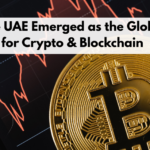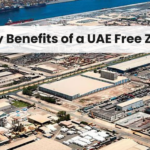Fintech Innovation in the UAE: ADGM and DIFC’s New Rules to Attract Global Entrepreneurs
The UAE has long been a global leader in fostering innovation and business-friendly environments, and the fintech sector is no exception. Recently, Abu Dhabi Global Market (ADGM) and Dubai International Financial Centre (DIFC) have introduced new fintech rules designed to attract global startups and solidify the UAE’s position as a premier fintech hub in the Middle East.
Discover the latest fintech regulations introduced by ADGM and DIFC in the UAE. Learn how these new rules simplify licensing, boost innovation, and attract global fintech startups to thrive in the Middle East’s leading financial hubs.
Introduction
The UAE has quickly emerged as a major fintech hub in the Middle East due to visionary government initiatives, strong financial infrastructure, and extremely high digital penetration. With investor-friendly regulations of internationally renowned free zones such as ADGM and DIFC, startups have a safe and supportive environment. The favorable location, capital accessibility, and availability of skilled talent. The major industries that are flourishing in the UAE are digital payments, blockchain, lending, InsurTech, and RegTech. Cooperation between the Central Bank and financial free zones, such as sandbox programs, has helped enhance fintech development, positioning the UAE as an ideal place for international fintech startups to expand in the region.
ADGM and DIFC fintech rules
Abu Dhabi Global Market (ADGM):
- Established in 2015, ADGM is an international financial center based in Abu Dhabi.
- Operates under English common law, governed by the Financial Services Regulatory Authority (FSRA).
- Strong focus on digital assets, blockchain, fintech, asset management, and sustainable finance.
Dubai International Financial Centre (DIFC):
- Launched in 2004, DIFC is one of the oldest and largest financial hubs in the Middle East.
- Governed by the Dubai Financial Services Authority (DFSA), also under English common law.
- Major focus on banking, wealth management, fintech, and traditional financial services.
ADGM’s New Fintech Regulatory Framework
In June 2025, ADGM’s FSRA introduced amendments to its digital asset regulations to better accommodate emerging fintech innovations.
Key highlights :
Accelerated Licensing Process
- Reduced licensing timeframes to facilitate quicker market access for digital asset service providers.
- Streamlined application procedures minimize bureaucratic hurdles for startups.
Increased Token Classifications
- The regulatory environment now specifically addresses decentralized finance (DeFi) tokens, non-fungible tokens (NFTs), stablecoins, and other new digital assets
- This inclusive approach attracts a wider variety of fintech models.
Increased Investor Protection Measures
- Increased compliance and disclosure requirements ensure investor protection in digital asset transactions.
- Mandatory risk assessments and transparency protocols are now enforced for digital asset firms.
Introduction of Innovation-Friendly Mechanisms
- Initiatives such as RegLab (regulatory sandbox) and Digital Lab allow startups to test products within safe environments.
- Encourages fintech innovation while monitoring risks.
Focus on Compliance with International Standards
- ADGM aligns its fintech regulations with global best practices, including FATF guidelines on anti-money laundering (AML) and combating the financing of terrorism (CFT).
DIFC’s Strategic Fintech Initiatives and Rules
DIFC, with its established financial system, has introduced several initiatives and regulatory guidelines aimed at fintech growth:
Fintech Hive Accelerator Program
- A large fintech accelerator in the region connecting startups with investors, mentors, and financial institutions.
- Provides access to capital, networking, and expert guidance.
Clear Regulatory Guidelines Under DFSA
- DFSA offers transparent and comprehensive guidelines for fintech operations covering licensing, compliance, and risk management.
- Clear policy on crypto-assets, crowdfunding, and payment services.
Support for New Technologies
- Emphasis on integrating AI, blockchain, and digital payments into the traditional financial system.
- Encourages innovation through sandboxes and pilot programs.
Focus on Fintech Ecosystem Growth
- Partnerships with universities, research centers, and industry bodies to cultivate fintech talent.
- Hosting global fintech events to promote the region as an innovation hub.
Why It Matters
ADGM’s new regulations simplify and accelerate the process for fintech startups particularly those dealing with blockchain, crypto, and digital finance to get started. It produces a welcoming, adaptable setting that promotes innovation and reassures investors. On the other hand, DIFC is ideal for fintech firms who want to establish strong ties with banks, wealth managers, and international investors. Its transparent regulations and support initiatives allow startups to scale smoothly and link up with the right partners to grow their business.
Key Differences Between ADGM and DIFC Regulations
| Feature | ADGM | DIFC |
| Regulatory Authority | FSRA | DFSA |
| Legal Framework | English Common Law | English Common Law |
| Focus Areas | Digital Assets, DeFi, NFTs, Blockchain | Banking, Wealth Management, Fintech |
| Licensing Process | Streamlined for digital asset firms | Clear guidelines for broad fintech |
| Innovation Support | RegLab, Digital Lab, Sandbox | Fintech Hive Accelerator, Sandbox |
| Investor Protection | Enhanced with strict disclosures | Comprehensive risk management standards |
| Collaboration Emphasis | Strong with global regulatory standards | Strong with local banks and ecosystem |
How These Updates Benefit Global Fintech Startups
- Faster Market Entry: Reduced licensing timeframes and clear guidelines help startups launch products quickly.
- Broader Innovation Scope: Inclusion of new asset types like NFTs and DeFi tokens opens new business avenues.
- Investor Confidence: Stronger regulatory protections attract institutional and retail investors.
- Access to Global Networks: Both free zones offer connections to international investors, tech partners, and financial institutions.
- Regulatory Sandboxes: Safe environments to pilot innovative fintech solutions reduce compliance risks.
- Alignment with International Standards: Facilitates cross-border operations and compliance.
Licensing and Compliance Process in ADGM and DIFC
ADGM Licensing Process
- Apply online through FSRA portal.
- Offer extensive business plans, compliance framework, and risk management strategies.
- Undergo background checks and fit-and-proper tests .
- Collaborate with RegLab for sandbox testing if necessary.
- Obtain license and meet continuous reporting.
DIFC Licensing Process
- Submit through DFSA’s online portal
- Present documentation such as governance policies, financial projections, and AML/CFT controls
- Join Fintech Hive accelerator (optional)
- Decision of licensing with transparent timelines
- Ongoing compliance monitoring and auditing
Both zones require startups to have a local office and meet capital requirements depending on the fintech activity.
Collaboration Between ADGM, DIFC, and UAE Central Bank
To build a consistent fintech ecosystem, ADGM and DIFC actively collaborate with the UAE Central Bank (CBUAE):
- Joint Regulatory Initiatives: Harmonizing regulations to avoid fragmentation.
- Shared Sandbox Programs: Cross-zone innovation testing facilities.
- Knowledge Exchange: Regular forums and workshops to align industry standards.
- Support for National Fintech Strategy: Driving UAE’s fintech ambitions with unified policies.
This collaboration enhances the UAE’s reputation as a stable and innovative financial hub.
Challenges and Considerations for Startups
- Regulatory Complexity: Navigating different rules in ADGM, DIFC, and mainland UAE requires expert advice.
- Capital Requirements: Initial and ongoing financial commitments vary as per license type.
- Compliance Burden: Strong AML, KYC, and reporting obligations demand robust systems.
- Market Competition: Growing interest in UAE fintech means increased competition for investors and talent.
- Legal and Operational Costs: Incorporation, legal counsel, and office setups add to startup expenses.
Future Outlook for Fintech in UAE
- The UAE is expected to maintain and expand its lead in fintech innovation in the Middle East and North Africa.
- Continued updates to regulations will accommodate emerging technologies such as Web3, AI-driven finance, and decentralized finance.
- Increasing focus on sustainability and green finance within fintech products.
- Greater regional integration through fintech collaborations with GCC neighbors.
- Enhanced government incentives to attract international fintech ventures.
Conclusion
The UAE’s double-fisted financial capitals — ADGM in Abu Dhabi and DIFC in Dubai — are not only keeping up with international fintech times, they’re making a benchmark for the MENA region and beyond. With new, innovative regulations aimed at drawing in blockchain disruptors, digital banks, and next-gen financial services, both hubs are saying it loudly and clearly: the UAE is open for business, and it’s ready to take the fintech future by storm.
For fintech startups, for investors, for innovators, these reforms represent more than regulatory certainty — they represent access to capital, to talent, and to a booming ecosystem linking East and West. Need the investor networks of DIFC or the ADGM innovation-led agility? The UAE today provides the ideal launchpad for your fintech aspirations.
Launch Your Fintech Startup in the UAE today.
Leverage ADGM and DIFC’s innovative fintech regulations and thriving ecosystems today. Whatever your needs for licensing, compliance, or strategic relationships, we’ll guide you through it all.
Contact us today to receive tailored advice and begin your path to fintech success in the UAE’s top financial centers.
References
- Abu Dhabi Global Market (ADGM)– https://www.adgm.com
- Dubai International Financial Centre (DIFC)– https://www.difc.ae
- UAE Central Bank– https://www.centralbank.ae
- FinancialActionTaskForce–https://www.fatf-gafi.org/publications/fatfrecommendations/documents/guidance-rba-virtual-assets.html
- DIFC Fintech Hive – https://fintechhive.difc.ae
Frequently Asked Questions (FAQs)
- What kinds of fintech startups are eligible to register in ADGM and DIFC?
ADGM and DIFC both accept a wide variety of fintech firms, such as digital payments, blockchain and cryptocurrency companies, InsurTech, RegTech, wealth management platforms, crowdfunding, and DeFi companies. ADGM is especially interested in digital assets and crypto innovation.
- How long does it take to get a fintech license in ADGM or DIFC?
In ADGM, the licensing process takes around 6 to 8 weeks due to their fast-track procedures. DIFC takes roughly 8 to 12 weeks, although attendance in initiatives such as Fintech Hive can speed up the process.
- Is 100% foreign ownership of a fintech firm allowed in these free zones?
Yes. Both ADGM and DIFC have 100% foreign ownership, enabling entrepreneurs to have complete control without a local partner.
- What are fintech license minimum capital requirements?
Minimum capital depends on the fintech activity type but typically ranges from AED 250,000. Specific minimums depend on the risk profile and the category of license.
- Do ADGM and DIFC permit cryptocurrency trading and digital asset services?
Yes. Both free zones have distinct regulatory frameworks that differentiate between crypto exchanges, wallets, and digital asset services under strict compliance protocols.
- Are sandbox or innovation programs offered to fintech startups?
Yes. ADGM provides the RegLab and Digital Lab, and DIFC runs the Fintech Hive accelerator and a regulatory sandbox to assist startups in testing products with regulatory oversight.
- Are fintech startups licensed in ADGM or DIFC able to operate on the UAE mainland?
Startups are allowed to operate throughout the UAE but will require further approvals or mainland licenses to do so outside of their free zone.
- How do ADGM and DIFC protect investors?
Both jurisdictions have in place robust KYC/AML measures, risk disclosure rules, cybersecurity regulations, as well as regular audit and reporting requirements to protect investors.
- What kind of support can fintech startups anticipate after being licensed?
Startups are provided access to investor networks, mentorship, advice on legal and regulatory matters, partnership opportunities with banks and financial institutions, as well as ongoing regulatory information.
- How do these new fintech regulations place the UAE in the fintech ecosystem globally?
Through the provision of transparent, complete, and innovation-conducive rules, ADGM and DIFC have fortified the UAE’s position as an East-West fintech gateway that welcomes international startups and investors looking for expansion in the MENA and international markets.













